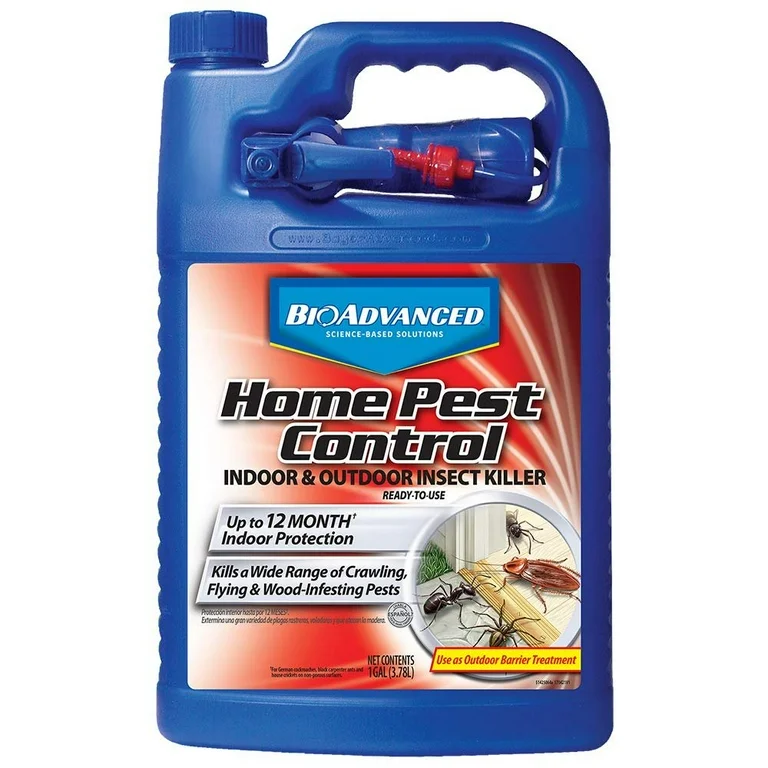A1 Charlotte Pest Control Companies - Your Regional Pest Specialists
A1 Charlotte Pest Control Companies - Your Regional Pest Specialists
Blog Article
Bed Bug Treatment Failure: Comparing Chemical Vs. Non-Chemical Solutions
In the world of bug control, particularly when handling the persistent problem of bed bugs, the selection between chemical and non-chemical therapy options can be a crucial one. Both methods use unique benefits and downsides, influencing elements such as efficiency, safety factors to consider, and general expense. By checking out the nuanced details of each approach, a more clear understanding of which path to seek in addressing a bed pest invasion can be obtained.
Performance of Chemical Therapies
Chemical treatments for bed insect invasions have actually been widely recognized for their potent and fast efficiency in eradicating these insects. When thinking about the effectiveness of chemical treatments, it is essential to comprehend that they can supply a quick and comprehensive solution to a bed bug issue. Specialist exterminators commonly depend on insecticides to target bed bugs at numerous stages of their life cycle, consisting of eggs, nymphs, and grownups. These chemicals normally work by interfering with the bed insects' nerve system, leading to paralysis and eventual fatality.
Moreover, chemical treatments have the advantage of using residual effects, indicating that they can remain to eliminate bed bugs even after the preliminary application. This residual action is specifically useful in combating any type of possible re-infestations. Furthermore, the fast action of chemical treatments can bring alleviation to people encountering serious bed bug infestations, enabling them to restore control of their living spaces quickly.
Security Interest In Chemical Solutions
When making use of chemical remedies for bed bug therapy is guaranteeing the safety and security of owners and the setting,One vital element that calls for cautious consideration. While chemical treatments can be efficient in eradicating bed insects, they might present risks otherwise managed effectively. Among the main safety worry about chemical remedies is the possible injury they can trigger to human wellness. Exposure to certain chemicals used in bed bug treatments can lead to respiratory system problems, skin irritability, or other damaging reactions, specifically in people with pre-existing conditions or level of sensitivities. In addition, incorrect application or dose of chemical pesticides can cause poisonous residues remaining in the treated location, posturing lasting wellness risks to passengers.
Additionally, the environmental influence of chemical options is another substantial factor to consider. Some chemicals used in bed insect therapies might be hazardous to helpful pests, wildlife, and environments if they seep into the soil or water supply. It is important to utilize chemical therapies judiciously, adhering to safety and security standards, and thinking about much less hazardous alternatives to alleviate these dangers and make certain the secure and effective management of bed insect invasions.
Benefits of Non-Chemical Techniques
Thinking about the potential safety problems and ecological influence linked with chemical solutions for bed bug therapy, exploring non-chemical techniques offers a promising alternative with numerous distinct benefits. Non-chemical approaches supply a more secure alternative for houses, especially those with family pets, kids, or people conscious harsh chemicals. These strategies remove the dangers of direct exposure to hazardous materials, lowering the capacity for adverse health and wellness results. Moreover, non-chemical therapies are environmentally friendly, as they do not add to air or water contamination, making them a sustainable option for insect control.
Furthermore, non-chemical remedies can be efficient in targeting bed insects, consisting of hard-to-reach areas where chemical therapies might not permeate - A1 bed bug exterminator charlotte. Methods such as heat treatment, vacuuming, steam cleaning, and mattress coverings provide extensive obliteration without the use of unsafe chemicals.
Limitations of Non-Chemical Treatments

In addition, non-chemical treatments commonly require numerous applications to accomplish successful obliteration. This can be lengthy and might not constantly ensure complete elimination of all bed insects and their eggs, particularly in surprise or hard-to-reach areas.
Furthermore, the success of non-chemical therapies heavily depends on proper implementation and thoroughness, which can be challenging for people without expert know-how. Poor application of non-chemical approaches may cause incomplete elimination, resulting in persistent infestations and the need for extra therapies.
As a result, while non-chemical therapies have their benefits, it is crucial to recognize these limitations and consider them when determining one of the most reliable technique for managing bed bug infestations.
Expense Comparison: Chemical Vs. Non-Chemical Options
Given the restrictions associated with non-chemical treatments, a crucial aspect to examine in the context of bed pest management is the expense contrast between chemical and non-chemical options. In comparison, non-chemical therapies like warmth therapy or steam can be extra pricey, with prices ranging from $1,000 to $6,000 for an entire home. While the preliminary cost of chemical therapies might seem reduced, several treatments might be needed to totally eradicate the problem, possibly increasing the overall expense.
Verdict

Taking into consideration the possible safety and security issues and environmental effect associated with chemical solutions for bed pest therapy, exploring non-chemical strategies presents an encouraging option with numerous unique benefits.Provided the constraints connected with non-chemical therapies, an essential element to examine in the context of bed insect administration is the price contrast in between chemical and non-chemical choices. In comparison, non-chemical treatments like warm treatment or heavy steam can be extra pricey, with prices varying from $1,000 to $6,000 for an entire home. While the first price of chemical therapies may appear reduced, numerous therapies may be required to completely eliminate the problem, possibly boosting the total expense.In verdict, when comparing chemical and non-chemical bed bug therapy choices, it is important to consider effectiveness, safety and security, advantages, limitations, and A1 bed bug treatment in charlotte cost.
Report this page